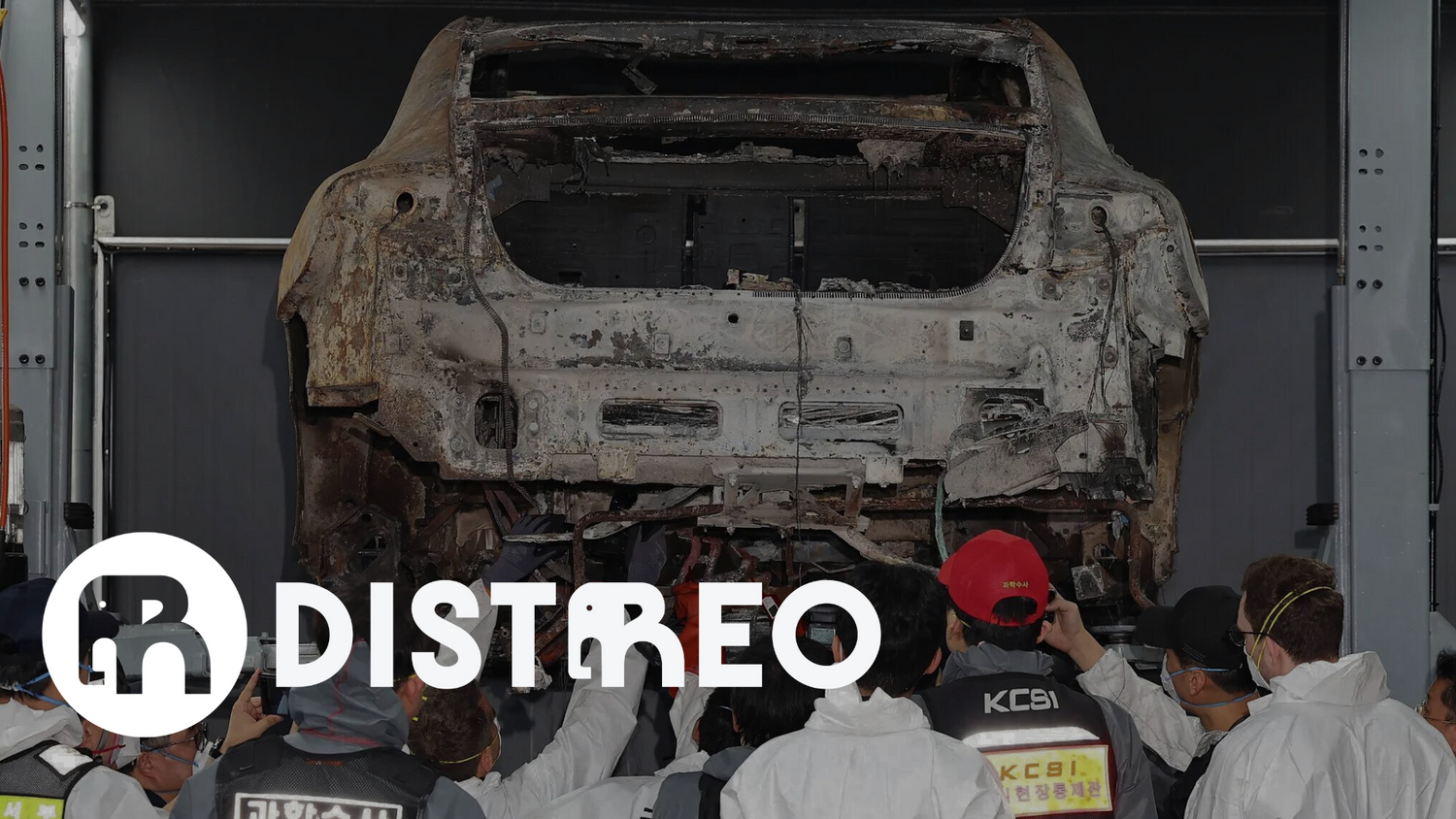The government is aggressively promoting electric cars. But a dramatic fire in an underground parking garage has potential buyers worried about safety.
Flames and smoke from a Mercedes-Benz electric sedan quickly spread through the underground parking lot of an apartment complex in South Korea this month. The fire damaged nearly 900 cars and left 23 people suffering from excessive inhalation of toxic fumes.
Firefighters needed more than eight hours to extinguish the fire, which reached temperatures of more than 1,500 degrees Celsius, according to officials in Incheon, the city near Seoul where the fire broke out on the morning of August 1.
Fires are much less common in electric vehicles than in gasoline-powered vehicles, and the cause of the Incheon blaze has not been revealed. However, in South Korea, a country that is one of the world's largest automakers, the fire has drawn public attention due to its scale and intensity and raised safety concerns that some say could hinder the government's aggressive promotion of electric vehicles.

A popular second-hand car sales platform, K Car, said listings from EV owners hoping to sell their vehicles have nearly tripled since the fire.
“I know EVs might be the greenest choice, but I’m still afraid they’ll catch fire,” said Lee Min, a Seoul office worker hoping to buy her first car. “I became even more scared after seeing the incident in Incheon.”
Reports of the fire and the social media reaction to it have focused on the risks associated with charging batteries, and automakers and government officials have sought to allay those fears. The Seoul Metropolitan Government said it would prevent electric vehicles from being fully charged in parking lots under residential buildings by the end of next month, limiting them to 90% capacity to prevent the risk of overcharging, although some experts questioned whether this would improve safety.
Some automakers, including Mercedes-Benz Korea, have offered owners free safety checks on their EVs and identified battery suppliers. The German automaker said a Chinese company, Farasis Energy, supplied the battery for the car that caught fire. Farasis did not respond with an official response.
“The popularity of EVs will decline in the coming period,” said Lee Ho-Guen, a professor of automotive engineering at Daeduk University in Daejeon. “People are scared.”

Before the fire, South Korea's EV market had grown rapidly, accounting for 9.3% of new cars in the country last year, according to official data.
The government has launched subsidies for buyers, as well as tax breaks for electric vehicle manufacturers, as part of an effort to reduce greenhouse gas emissions by about 40% by 2030, compared to 2018 levels. The government hopes to end sales of gasoline-powered vehicles by 2035. The government has spent 371.5 billion Korean won, or about $280 million, to install charging facilities.




Write a comment
Comments are verified before being published.
This site is protected by hCaptcha and the hCaptcha Privacy Policy and Terms of Service apply.